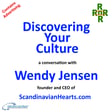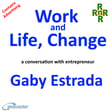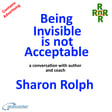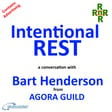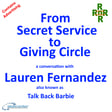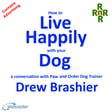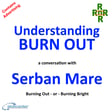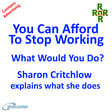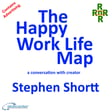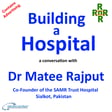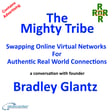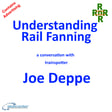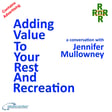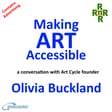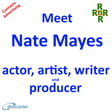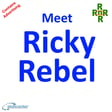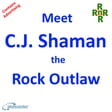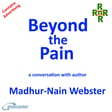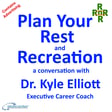
Jazz for Peace – a conversation with founder Rick DellaRatta
Rick DellaRatta, is a New York based jazz pianist, vocalist and composer.
On the morning of September 9th 2001, he witnessed the terrorist attack on the World Trade Centre from the roof of the five-storey walk-up apartment building that he lived in.
Rick felt compelled to commit his thoughts to paper in the form of a poem entitled Jazz for Peace.
Since that day Rick has focused on trying to live life in a way that fulfils the message of the poem.
In this episode of the Abeceder work life balance podcast Rest and Recreation Rick explains to Michael Millward how the poem inspired him to create a jazz collective also called Jazz for Peace that tours America and increasingly the world spreading the message of peace and helping to raise money for good causes.
As part of his support for not-for-profit organisations Rick has developed the empowerment tree that helps fund-raisers to turn a simple comment into tangible funds raised.
Visit Abeceder for more information about Rick DellaRatta and Michael Millward.
Audience Offers
Rest and Recreation is made on Zencastr, because creating podcasts on Zencastr is so easy, you can as well by visiting Zencastr and using our offer code ABECEDER.
Travel – at trade prices anywhere in the world at trade prices on flights, hotels, trains, and holidays as members of The Ultimate Travel Club.
Health – York Test provides an Annual Health Test. An experienced phlebotomist will complete a full blood draw at your home or workplace. Hospital standard tests covering 39 different health markers are carried out in a UKAS-accredited and CQC-compliant laboratory.
A Personal Wellness Hub gives access your easy-to-understand results and guidance to help you make effective lifestyle changes anytime via your secure, personal Wellness Hub account.
Visit York Test and use this discount code REST25.
Tech Problems? – Visit Three for information about business and personal telecom solutions from Three, and the special offers available when you quote our referral code WPFNUQHU.
If you have liked this episode of Rest and Recreation, please give it a like and download it. To make sure you do not miss future editions please subscribe.
Remember, the aim of all the podcasts produced by Abeceder is not to tell you what to think, but we do hope to make you think!
Being a Guest
If you would like to be a guest on Rest and Recreation, please contact Abeceder.
Matchmaker.fm introduce many guests to Rest and Recreation. Matchmaker.fm is where great hosts and even greater guests are matched, and fantastic podcasts are hatched. Use code MILW10 for a discount on membership.
We recommend that potential guests take one of the podcasting guest training programmes available from Work Place Learning Centre.
Thank you to you for listening.
We appreciate every like, download, and subscription.
